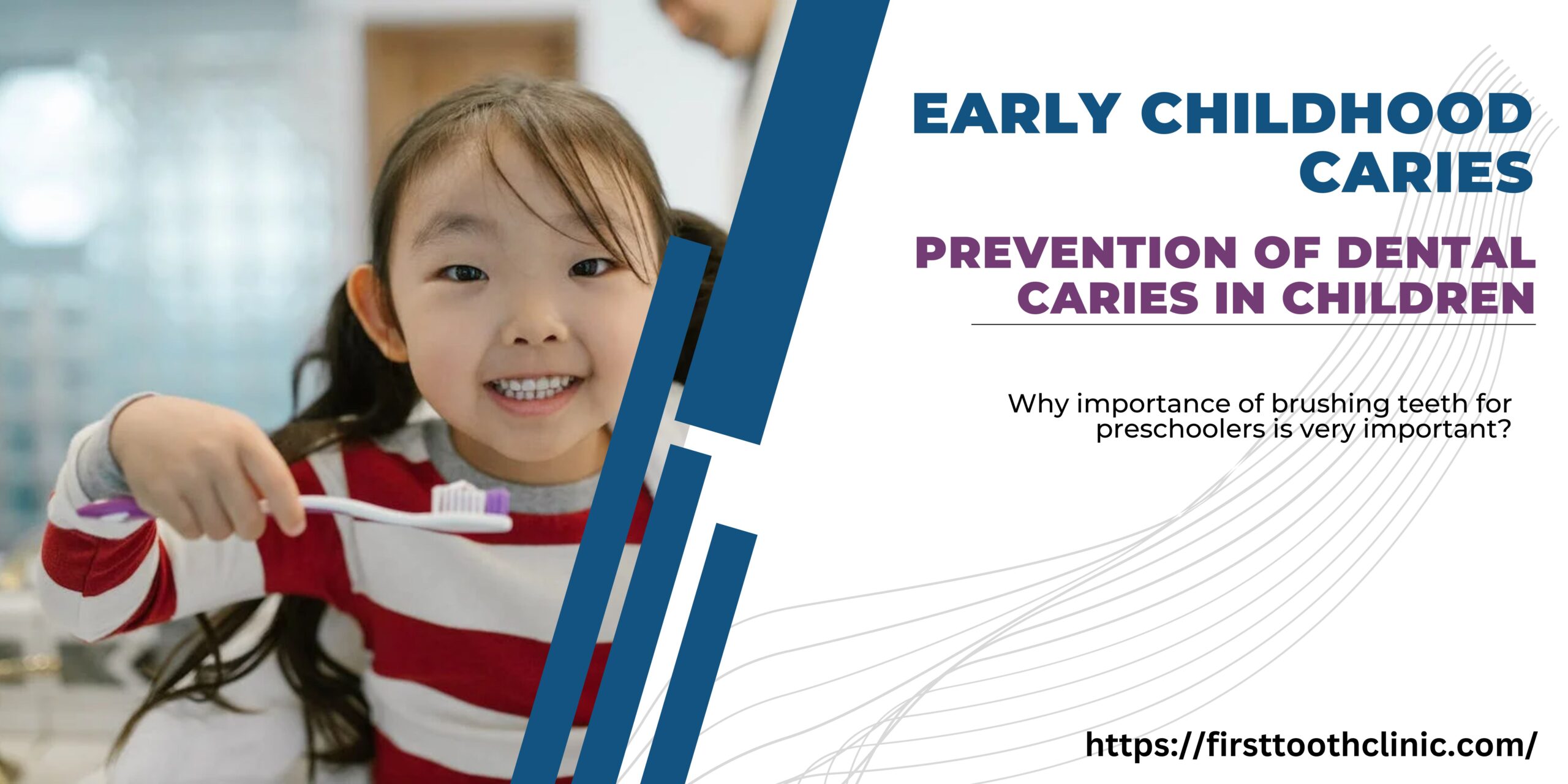
One of the most prevalent childhood illnesses is dental caries, and people can contract it at any point in their lives. Even though dental caries can be stopped and possibly even reversed in their early stages, they frequently do not self-limit and continue without treatment until the tooth is completely lost. That is why importance of brushing teeth for preschoolers is very important. In this blog we are discuss on Prevention of Dental Caries in Children and to know early childhood caries.
What are Early Childhood Caries?
Early childhood caries refers to cavities, which can affect any tooth but most frequently appear on a child’s upper front teeth. White patches first appear close to the gum line.
Dr. Ankit Srivastava, MDS Pedodontics Dentistry, claims that although these spots are initially difficult to perceive, they can be halted from developing into cavities if discovered early.
As the condition worsens, they may resemble brown patches, holes, or fractured teeth, requiring more complex operations to repair. In the Prevention of Dental Caries in Children from getting worse, it is crucial to seek therapy as soon as possible.
It is very important for your child to take care of dental caries, that is why dental care for school age is very much needed.
What Causes Early Childhood Caries?
It happens when your child keeps sugar-containing foods and drinks in their mouth for a lengthy amount of time, like milk and juice. Bacteria love sugar, which they use to make the acids that slowly damage your child’s teeth.
Your child’s caries risk, or the possibility that he or she will acquire caries, is determined by these and other factors, including the frequency of feedings, oral hygiene, medications.
other medical and dental disorders, and other environmental factors. That is why the importance of brushing teeth for preschoolers is very important.
Prevention of Dental Caries in Children
Not putting your child to bed with a bottle of milk, juice, or other sweet beverages is one of the simplest strategies to avoid caries. Most babies who are seven to eight months old no longer require night-time feedings. Additionally, providing a bottle to a child who is lying down increases the likelihood that they may develop ear infections. If your child needs a bottle to go to sleep, gradually add water to the milk or juice over the course of a few weeks until they are only drinking water.
Some other methods are:
- You should only give your youngster a bottle at mealtimes. Do not let your youngster carry it or use it as a cup for drinking during the day.
- Dental Care for School age children is again very important as a school kid eats most sugary items.
- Limiting starchy, sugary snacks and sugary beverages while establishing a healthy, balanced diet for your child.
- Starting at birth, gently brush your baby’s gums with a soft toothbrush or cloth and water. Use a gentle toothbrush twice a day once their first tooth erupts.
- Not putting pacifiers in any drink with sugar.
- Early cup-drinking instruction should be given to children, ideally before they turn one year old. It is less likely for the liquid to collect around the front teeth when drinking from a cup.
- Children who use a bottle after 15 months of age
- consume sweets or starchy snacks more than three times per day are more likely to develop Dental Caries.
- By the time they turn one, take your child to a pediatric dentist for an early examination. Your child’s risk of acquiring cavities and the best ways to avoid them will be covered by the pediatric dentist.
Also Read:



